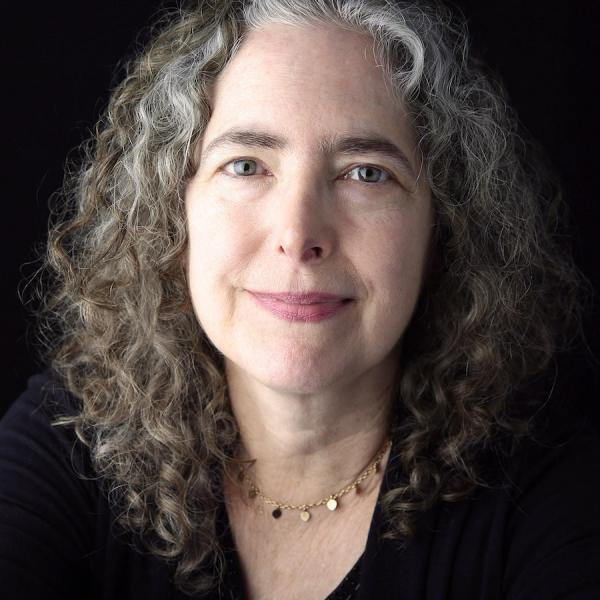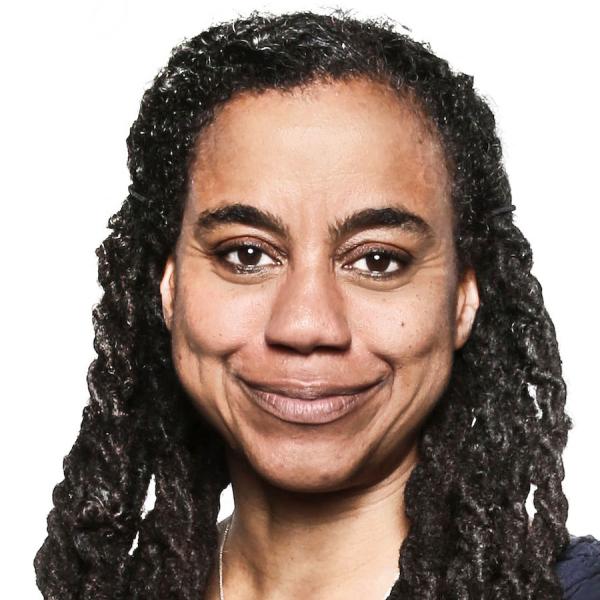Chairman's Corner: September 10, 2020
Jo Reed: I'm Josephine Reed from the National Endowment for the Arts with The Chairman's Corner, a weekly podcast with Mary Anne Carter, Chairman of the Arts Endowment. This is where we'll discuss issues of importance to the arts community and a whole lot more.
Beginning of a new school year, although a very different kind of school year for millions of students and families. So it seems like a good time to talk about one of your favorite programs, Mary Anne, "Poetry Out Loud." And why don't you begin by giving us a little bit of background about the program.
Mary Anne Carter: Thank you, Jo. You are so right. I am always happy to talk about POL or Poetry Out Loud. It's part of our wonderful arts education and literature initiative. And every year since 2005, the National Endowment for the Arts and the Poetry Foundation have worked with thousands of schools and organizations nationwide to bring students a unique way to learn and to fall in love with poetry. And so through Poetry Out Loud students and more than 4 million students to date read, memorize and recite classic and contemporary poems in a nationwide contest.
The contest starts in schools and with local organizations and ends with one finalist from each state plus Washington, D.C., Puerto Rico, the U.S. Virgin Islands, Guam and American Samoa competing for the title of Poetry Out Loud National Champion and a grand prize of $20,0000 dollars. And you know, Jo, through POL, poetry becomes deeply ingrained. It becomes part of these young people's lives and it can also help students improve writing, analytical skills, master public speaking and help to build self-confidence.
Jo Reed: And this isn't just rhetoric. You actually have the data to prove this.
Mary Anne Carter: Absolutely. The Arts Endowment and the Poetry Foundation commissioned a study with Social Policy Research Associates to understand how POL impacted students. And that study, which can be found on our website, it's titled "Line By Line: Transforming Student Lives and Learning with the Art of Poetry," involves data collection from 10 schools that evaluated the program's impact on one, academic performance; two, social and emotional development; and three, poetry appreciation and engagement. And some of the findings-- starting with academic performance-- students of POL said that analyzing, memorizing and interpreting poetry helped them develop skills that they applied in their English courses as well as other subjects, including history and even science. Students that participated in POL were 1.7 times more likely to have dreams of college or graduate school than non-participants-- even after research was controlled for other factors. And in terms of the social and emotional development, we know that POL students reported having more confidence in group discussions than their peers. They were 1.5 times more likely than non-POL participants to do community service and volunteer, and again, even after researchers controlled for those other factors. And regarding poetry appreciation, students' exposure to poetry, you know, it gives them a new way to see things. It gives them a new way to see the world. It fosters connection and empathy and it really helps these students reach a greater understanding of themselves.
Jo Reed: And I know there are numerous ways that Poetry Out Loud helps schools as well.
Mary Anne Carter: Oh, sure. It's not given nearly as much attention, but it is very important. Participating in POL, it boosts a school reputation and serves as a community builder. It provides more avenues for student self-expression. And it brings together students who may not otherwise have formed connections with each other.
Jo Reed: Well, the 2020-2021 program is going to be a little different from years past because of COVID-19. Can you explain how it's going to work in this cycle.
Mary Anne Carter: Yes. So the Arts Endowment and the Poetry Foundation have determined that the national finals will be held virtually in the spring of 2021. We are strongly encouraging teachers and organizers at all contest levels to hold virtual competitions for the 2021 season and we have developed guidance to help support them in doing that. Now we've already had a taste of a virtual Poetry Out Loud because for the 1920 [ph?] program we were not able to hold a national contest, which typically takes place in April in Washington, D.C. We didn't host it at all. Plus, some states weren't even able to conduct their competitions while other states actually did very quickly pivot to a virtual contest. So we've learned a lot about creating and sharing virtual recitations and we'll bring that experience to this year's program. And you know what, it's going to be great. It really is. I invite all our listeners to visit the Arts Endowments YouTube channel, check out some of the fabulous video recitations of the 1920 state competitions and I think you'll agree that their presentations, their pose and passion are inspiring.
Jo Reed: I agree. They are. They really are. And I think that's a great place to leave it, Mary Anne. Thank you.
Mary Anne Carter: Thank you, Jo.
Jo Reed: That was Mary Anne Carter Chairman of the National Endowment for the Arts. You can check out the study “Line by Line” which analyzed the impact of Poetry Out Loud at arts.gov. And for more information on the 2020-2021 POL competition, go to poetryoutloud.org.
For the National Endowment for the Arts, I’m Josephine Reed. Stay safe and thanks for listening.
Music Credit: “Renewal” composed and performed by Doug Smith from the cd The Collection.
This week, the chairman talks about the impact of Poetry Out Loud on participants and outlines the changes to the 2020-2021 program.




